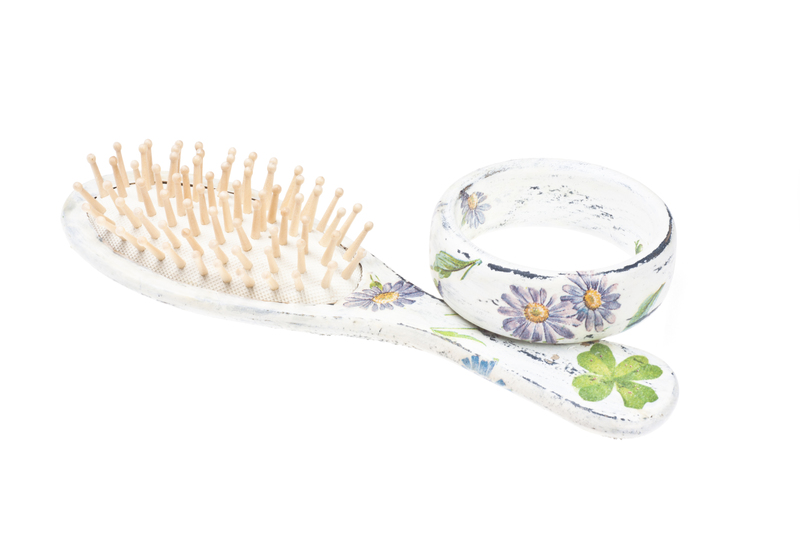The Minimalist Mindset: Decluttering for a Better Life
The minimalist mindset is more than just a trending lifestyle choice; it's a philosophy that empowers people to reclaim their lives, regain clarity, and live with purpose. In today's fast-paced, consumer-driven world, it's all too easy to accumulate physical and mental clutter. Adopting a minimalist approach offers a pathway toward serenity, productivity, and well-being. In this article, we'll delve deep into the principles of minimalism, explore its profound benefits, and provide actionable strategies for anyone looking to declutter their life for a happier, healthier existence.
What Is the Minimalist Mindset?
The minimalist mindset revolves around the principle of living with less to make room for what truly matters. It encourages intentionality in every area of life, urging us to keep only what brings value, meaning, and joy. Minimalism is not about deprivation or stark, empty spaces. Instead, it's about prioritizing, simplifying, and fostering a deeper connection with ourselves and our environment.
- Intentional Living: Focusing on purpose and meaning in choices.
- Simplicity Over Excess: Reducing unnecessary possessions, distractions, and commitments.
- Mindful Consumption: Questioning what you allow into your life--physically, mentally, and emotionally.
Minimalism Beyond the Aesthetic
While minimalist design--clean lines, neutral palettes, and empty surfaces--often captures the public's attention, the true essence of minimalism extends beyond aesthetics. It's about cultivating clarity and freedom in all areas of life, creating room for creativity, contentment, and growth.

Why Declutter? The Life-Changing Benefits of Embracing Minimalism
Decluttering, at its core, is the first practical step in adopting a minimalist lifestyle. However, the benefits of decluttering and minimalism go far beyond a tidy home. Let's explore the positive transformation that simplifying can bring.
1. Enhances Mental Clarity
Physical clutter often translates into mental clutter. When our spaces are overloaded with things, so too are our minds--leading to stress, anxiety, and overwhelm. Decluttering encourages a sense of calm and focus, helping us make clearer decisions and reducing cognitive overload.
2. Boosts Productivity and Creativity
Cluttered environments can distract us and inhibit our ability to concentrate. Minimalist spaces support enhanced productivity and creative thinking because they offer fewer distractions and more mental space for ideas to flourish.
3. Saves Time and Money
Minimalism means you buy less, maintain less, and spend less time searching for things. People who embrace a minimalist mindset often find themselves saving:
- Money, by avoiding impulsive purchases designed to fill a void
- Time, by reducing the effort needed to clean and organize
- Energy, by focusing only on what truly adds value
4. Cultivates Meaningful Relationships
Fewer distractions allow for stronger, more authentic connections. Prioritizing experiences and relationships over physical possessions encourages deeper bonds with family, friends, and the community.
5. Supports Environmental Sustainability
Adopting a decluttered lifestyle can reduce waste and minimize your carbon footprint. By buying less and choosing quality over quantity, you also contribute to a healthier planet.
How to Adopt the Minimalist Mindset: Practical Steps to Declutter Your Life
Embracing the minimalist lifestyle is a personal journey that takes time, commitment, and self-reflection. Whether you want to declutter your home or simplify your mental space, these tips will guide your transformation.
Physical Decluttering: Simplifying Your Environment
- Start Small
Choose one area--perhaps a desk drawer, closet, or kitchen shelf--and commit to decluttering it completely. Small victories build motivation. - Sort and Assess
For each item, ask: Do I use this regularly? Does it bring me joy? Is it essential? If the answer is no, consider donating, recycling, or discarding it. - Organize by Category
Group similar items together. This method, popularized by Marie Kondo, helps you see excess and make better decisions. - Adopt the One-In, One-Out Rule
Whenever you bring something new home, let go of another item. This prevents clutter from accumulating again. - Invest in Quality, Not Quantity
Choose fewer, higher-quality pieces that serve multiple purposes. Durable, timeless items reduce the need for future replacements.
Mental and Emotional Minimalism: Clearing Your Mind
- Minimize Information Overload
Unsubscribe from unnecessary emails, limit social media use, and curate your content to ensure what you consume nourishes your mind. - Practice Mindfulness
Meditation, journaling, or simply pausing to breathe deeply can help declutter intrusive thoughts and foster present-moment awareness. - Set Boundaries
Learn to say no to commitments that drain your energy. Value your time and protect your mental space. - Let Go of Emotional Baggage
Minimalism also means releasing old grudges, regrets, or anxieties that weigh you down. Seek support if needed, and focus on healing.
Minimalism in Practice: Tips for Long-Term Success
Decluttering is not a one-off event; it's an ongoing practice. To maintain a minimalist mindset and enjoy the benefits of a simplified life, consider these strategies:
- Develop Routines
Daily or weekly decluttering routines help you stay organized and prevent clutter from returning. - Reflect Regularly
Take time to evaluate what's working and what isn't. Adjust your habits and environment accordingly. - Celebrate Progress
Recognize and appreciate the positive changes, no matter how small. Every step towards simplicity matters!
Minimalism as a Family or Household
Bringing others along on your minimalism journey can be rewarding. Communicate your reasons and invite loved ones to participate in decluttering, making the experience collaborative rather than forced. Encourage children to donate unused toys or clothes, and discuss the joys of making space for new adventures.
Common Minimalist Challenges (and How to Overcome Them)
- Sentimental Items: It can be tough to let go of keepsakes. Consider keeping only items that truly hold memories, or take photos before letting go.
- Societal Pressures: Advertisements and social media promote consumerism. Remind yourself why you chose minimalism and stay true to your values.
- Relapses: Clutter may creep in, especially after events or holidays. Regular check-ins help you reset and stay on course.
The Ripple Effect: How Minimalism Transforms More Than Just Your Stuff
Adopting a minimalist mindset is often the catalyst for broader life changes. Many individuals report:
- Better health, thanks to reduced stress and more time for self-care
- Greater financial security, due to less spending on non-essentials
- Improved relationships, as communication and presence improve
- A stronger sense of purpose and direction
Minimalism also opens the door to new hobbies and travel, encourages gratitude, and helps you align actions with your deepest values.
Frequently Asked Questions About the Minimalist Mindset
Q: Does embracing a minimalist mindset mean giving up everything I love?
Not at all! Minimalism is not about deprivation; it's about making conscious choices. You can keep anything that's important, meaningful, or useful to you. The goal is to remove the excess so you can better appreciate and enjoy what you love.
Q: How do I start living a more minimalist lifestyle?
Begin by decluttering a single space. Gradually work through other areas, questioning what truly adds value. Remember, it's a personal journey--take small, sustainable steps, and don't compare your progress to others.
Q: Can minimalism help with anxiety?
Many people experience reduced anxiety and greater peace after decluttering. A minimalist environment feels more calming and manageable, which has a positive impact on mental health.
Q: What are some minimalist habits I can adopt right now?
- Unsubscribe from one email list
- Donate a bag of clothing or household items
- Organize your digital files and photos
- Practice "mindful shopping" by pausing before purchases
- Block out quiet, tech-free time each day

Resources and Inspirations for Minimalist Living
- Books: "The Life-Changing Magic of Tidying Up" by Marie Kondo, "Minimalism: Live a Meaningful Life" by Joshua Fields Millburn & Ryan Nicodemus, "Digital Minimalism" by Cal Newport
- Documentaries: "Minimalism: A Documentary About the Important Things," "The Minimalists: Less Is Now"
- Websites and Blogs: The Minimalists, Becoming Minimalist, Be More with Less
Conclusion: Unlocking a Better Life Through the Minimalist Mindset
Living with less unlocks more of what truly matters. Embracing the minimalist mindset is a powerful way to declutter your space, clear your mind, and cultivate a richer, more intentional life. From discovering hidden clarity and financial freedom to fostering health, happiness, and sustainability, minimalism offers a transformative journey for anyone seeking a better existence.
By starting small, embracing change, and staying committed, you too can experience the tremendous benefits of minimalist living. Let go of the unnecessary, make room for joy, and discover a life marked by clarity, purpose, and true freedom.
Ready to begin? Take your first decluttering step today--and embrace the possibilities of a minimalist tomorrow.